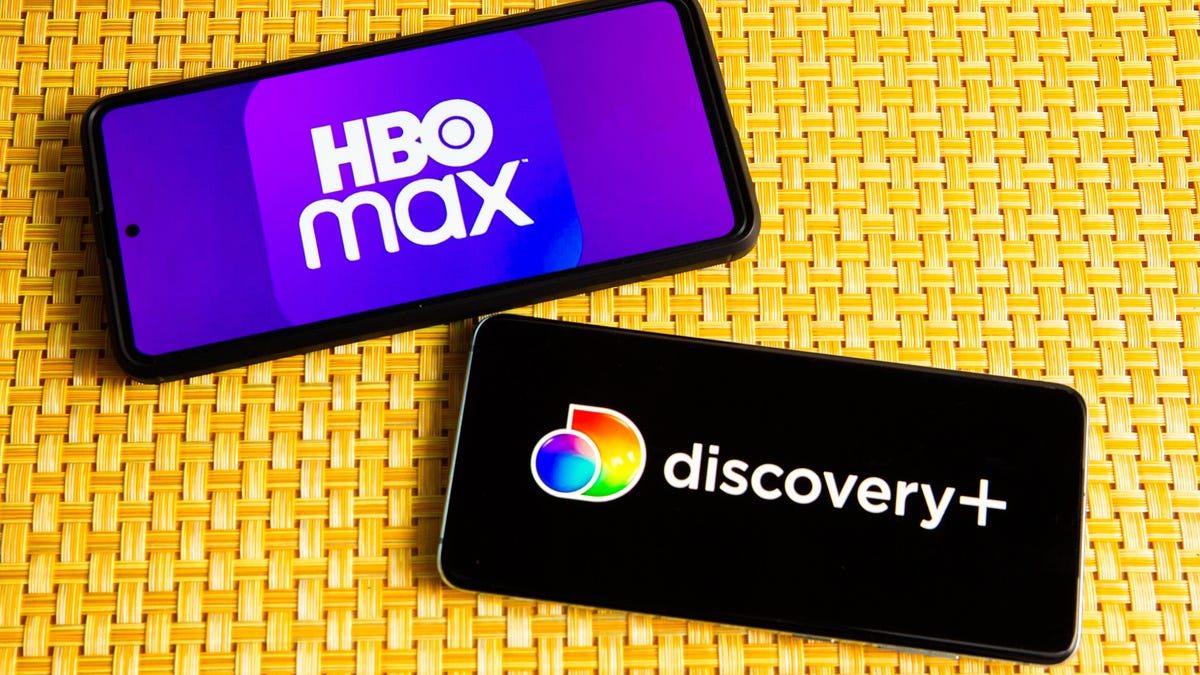Discovery, HBO-Owner WarnerMedia Unite as Their Megamerger Closes
Newly formed Warner Bros. Discovery is expected to start bundling and combining streaming services HBO Max and Discovery Plus.

Discovery and WarnerMedia closed their $43 billion megamerger Friday to form the combined company Warner Bros. Discovery. The consummation of the deal unites Discovery, known for reality shows and unscripted programming on its cable networks and streaming service Discovery Plus, with a Hollywood powerhouse in WarnerMedia, home to streaming service HBO Max, the Warner Bros. movie studio and TV channels like HBO, CNN, TBS and more.
Their combination has clouded the future shape of both HBO Max and Discovery Plus. Last month, Discovery's financial chief said the company's ambition would be to combine the two services, before acknowledging that integrating them together well would take months. In the meantime, Warner Bros. Discovery would explore intermediary steps like bundling the services in a deal package, he added.
HBO Max is known for prestige originals and a deep library of top movies. Discovery Plus, on the other hand, is known for unscripted programming at both the high end (like award-winning natural history documentaries) and the low (like Naked and Afraid and the wildly popular 90-Day Fiance).
HBO Max and traditional HBO have 74 million subscribers globally, while Discovery Plus has 22 million worldwide. Still, even mashed together, that's a far cry from Netflix's 221 million.
The merger is the most recent media deal-making, at a time when streaming video has never been more popular -- and the competition around it never more fierce. In the last two years, media giants and tech heavyweights have launched their own rivals to Amazon Prime Video and Netflix, with services like Apple TV Plus, Disney Plus, HBO Max and Peacock rolling out. These so-called streaming wars affect how many services you must use -- and pay for -- to watch your favorite shows and movies online.
The intensifying competition in streaming has triggered a wave of consolidation among media companies, as survival of the fittest in Hollywood solidifies around being a giant -- or part of a giant -- to prosper. Disney bought Fox; Viacom and CBS merged into Paramount; and AT&T bought Time Warner, only to strike this deal to spin it all off again. Amazon is attempting to take over MGM, one of the few smaller media properties left.
Discovery's longtime chief, David Zaslav, is remaining at the the helm of Warner Bros. Discovery.
Many top WarnerMedia executives exited recently ahead of the deal's close. Neither Jason Kilar, the CEO of WarnerMedia and architect of HBO Max, nor Ann Sarnoff, the head of the Warner Bros. studios, will be joining the new company. That follows an earlier exodus of Warner leaders less than four years ago, when AT&T acquired the company. Gone in that wave was Richard Plepler, the longtime head of HBO who ushered the network to newfound critical and popular dominance with hits like Game of Thrones.
Warner Bros. Discovery will begin trading on the Nasdaq as WBD on April 11.

